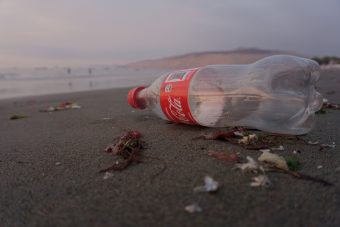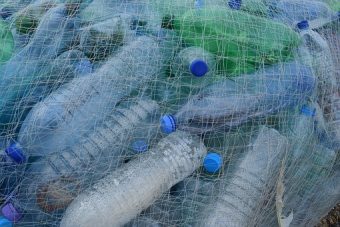
Although the plastic industry is worth about 700 billion dollars a year, provides millions of jobs and generates other social benefits, we have to look at the bigger picture, i.e. how plastic is used and disposed of because it harms the environment, people, but also the economy and the companies themselves.
As stated on the website of the World Economic Forum, this comprehensive view has led to countries agreeing to create an international legally binding instrument on plastic pollution by the end of 2024.
Negotiations on this Instrument have been going on for almost two years now and the last two rounds of negotiations this year will be crucial, as will the proactive engagement of all stakeholders – including the private sector – who must help the negotiators to send out the right signals so that the business sector can end plastic pollution.
There are several key points that the Instrument must achieve. Firstly, unnecessary, problematic and avoidable plastic products must be eliminated. These are mainly single- or multiple-used items.
Secondly, products have to be redesigned, including their packaging, which implies using less plastic, with such products becoming easier to reuse, replenish, repair and recycle. As an example, the transition from liquid soaps, shampoos and detergents to solid substances delivered in non-plastic packaging was offered.
More:
- WHAT TO EXPECT DURING PIVOTAL TALKS TO END PLASTIC POLLUTION
- 2023 CHAMPIONS OF THE EARTH AWARD TO CELEBRATE PIONEERING EFFORTS TO END PLASTIC POLLUTION
- HOW CAN A LIFE-CYCLE APPROACH CURB THE PLASTIC POLLUTION CRISIS?
Thirdly, it is necessary to implement innovations to switch to other materials, alternative plastics and plastic products that do not have a negative impact on the environment, health and society. This includes eliminating microplastics and chemicals harmful to human health.

Fourthly, it is crucial to invest in better systems to reduce, reuse, replenish, repair, recycle and manage and dispose of waste in an environmentally sound manner. This will encourage manufacturers to design reusable products and ensure that resources become circular. However, all this must happen while enabling a just transition and decent jobs for the communities.
Estimates show that if such an agreement were to be reached, most plastic pollution could be ended by 2040, including the one in the marine environment, while simultaneously unlocking social and economic opportunities. What’s more, research by the United Nations Environment Program (UNEP) and other organizations has shown that hundreds of thousands of new and fairly distributed jobs could be created, as well as billions of dollars generated in savings in public and private funds if the negative effects of plastic on health, climate change, air pollution and ecosystem degradation are eliminated.
In order to achieve all this, the Instrument has to resolve some other important issues. A level playing field must be created for all and regulatory approaches harmonized at the international level. Also, countries that consume large amounts of plastic should take greater responsibility and provide support to those economies that depend on plastic production. These are just some of the actions that must be coordinated among the countries that support the creation of this Instrument.
Energy Portal



